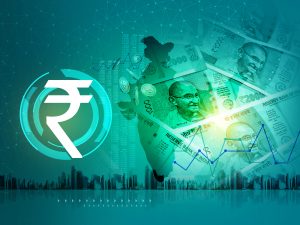Indian Prime Minister Narendra Modi’s newly formed government presented an annual budget to Parliament that raises spending to generate more jobs and spur economic growth, while aiming to appease coalition partners it needs to stay in power.
In her budget speech Tuesday, Finance Minister Nirmala Sitharaman said the government is focused on driving domestic growth through jobs, training and small businesses.
India’s inflation rate is stable and moving toward the government’s 4 percent target, she said, while the economy grew at a sizzling 8.2 percent rate in the last fiscal year.
“India’s economic growth continues to be the shining exception and will remain so in the years ahead,” Sitharaman said.
More than a decade after he first took office as prime minister, Modi is under pressure to generate more jobs to help sustain growth.
The proposed budget includes a $24 billion package for job creation over the next five years and raises spending on loans for small and medium-size businesses. It allocates $18 billion to support agriculture and farm technology, such as climate-resilient seed varieties.
It also would raise spending, to $133 billion, on construction of thirty million homes for the poor, schools, airports, highways, and other infrastructure. The budget would cut taxes on big corporations and allocate more funds to two states, Andhra Pradesh and Bihar, which are governed by the Modi government’s biggest coalition partners.
The government plans to build new airports, medical colleges and sports and tourism facilities in eastern India’s Bihar state, which is ruled by the Janata Dal (United) party.
Sitharaman also announced special financial support for southern India’s Andhra Pradesh state, ruled by the Telugu Desam Party.
Modi’s governing Bharatiya Janata Party is relying on those two regional parties to keep its coalition government in power after it failed to win a majority on its own in recent national elections.
Modi said the budget will lead India toward “better growth and a bright future.”
“Today’s budget will act as a catalyst in making India the world’s third largest economy,” he said in a speech, reiterating his pledge to make India one of the top three economies during his third term in office.
India’s economy — the fifth largest in the world — is projected to grow at an annual rate of between 6.5 percent to 7 percent in the fiscal year ending in March 2025. But experts say the benefits of its rapid growth are shared unequally, as wealth of already affluent Indians has risen steadily without reaching the majority of Indians who toil in the country’s large informal sector, where the quality of jobs is poor and precarious.
Billions of dollars worth of subsidies to manufacturing have not led to creation of enough jobs. To mitigate rising unemployment, the government said it will provide 12-month paid internship opportunities to 10 million young people in India’s top 500 companies for a five-year period. Sitharaman said the training cost will be borne by the companies.
According to the Center for Monitoring the Indian Economy, youth unemployment was at 9.2 percent in early July, underscoring the challenge of delivering jobs in the world’s most populous country, where millions graduate every year.
Inequality has surged in India in the last decade. According to a report by World Inequality Lab, wealth concentrated in the richest 1 percent of India’s population is at its highest in six decades.
The government is aiming for a fiscal deficit of 4.9 percent of India’s gross domestic product for the 2024-25 financial year, lower than the 5.1 percent figure in February’s short-term budget, Sitharaman said.
India is one of the highest current sources of emissions that lead to global warming, but the government announced plans Tuesday to set up a new 800-megawatt coal-fired thermal power plant. Sitharaman said the government will also support the development of small and modular nuclear reactors to help meet India’s future energy demand.
The budget also allocates $1.37 billion to address damage from floods. India, which is one of the countries most vulnerable to climate impacts, has suffered an increase in flooding due to extreme rains and glacier melt in the last few years.
The budget requires approval from both houses of Parliament, but it is bound to be enacted as Modi’s coalition government holds a majority.

































